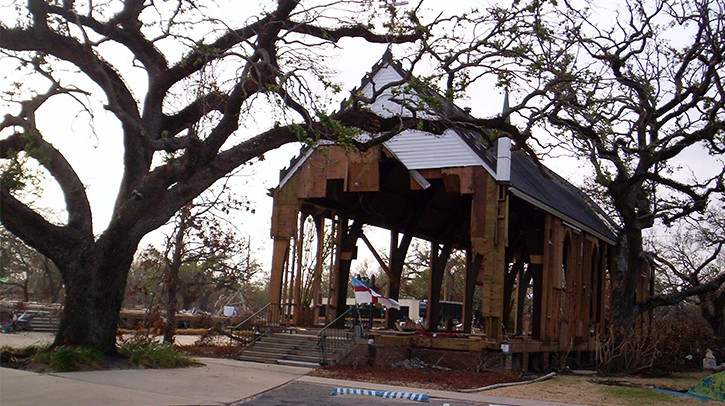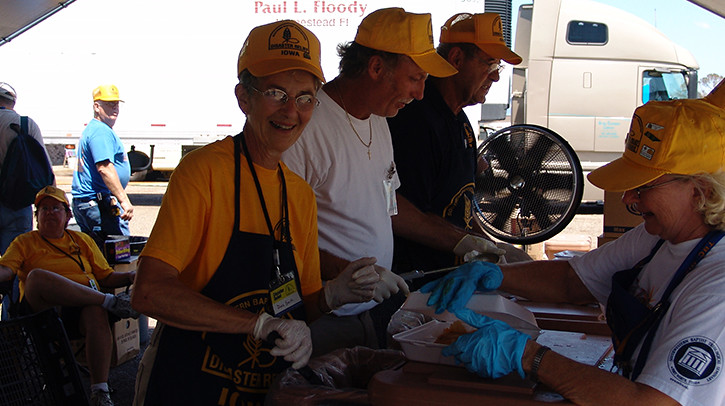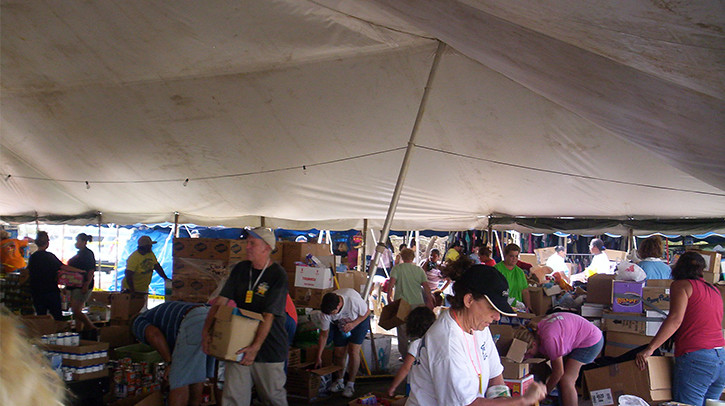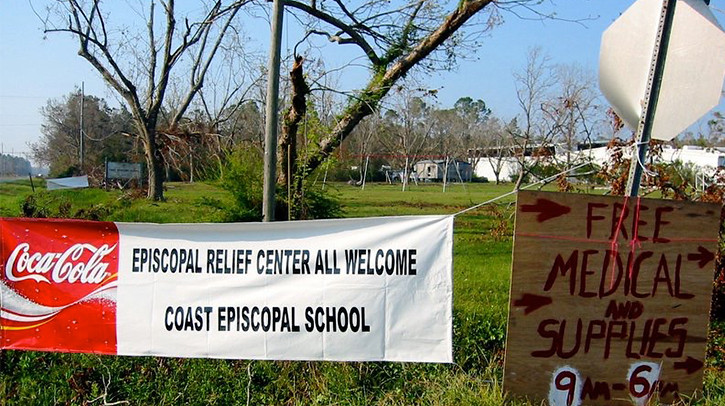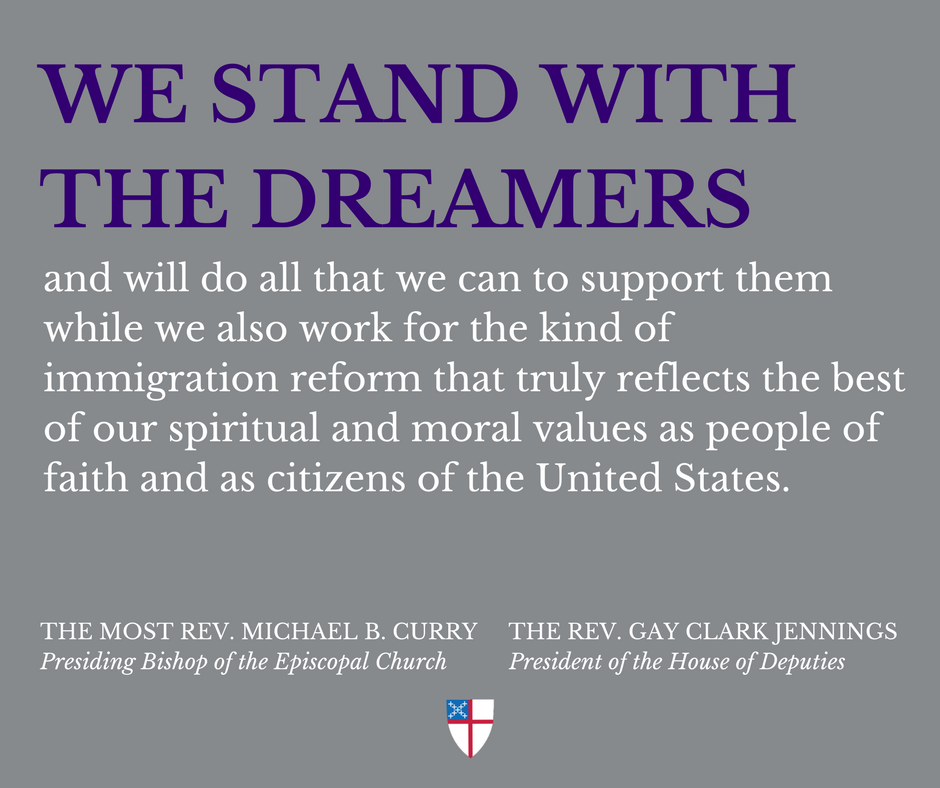(From Rowan's EYE experience this summer)
Article By Liana Rothman, Community engagement coordinator of K4P
Kids4Peace had the unique opportunity to join around 1300 American and international youth at the 2017
Episcopal Youth Event in Oklahoma for 5 days.

Adam and Charlie, an Israeli and a Palestinian, incoming 11th graders
from K4P Jerusalem, Lana, an incoming senior from K4P Vermont (born in
Baghdad, Iraq), and Liana, the community engagement coordinator from K4P
Jerusalem, joined executive director and Episcopal Father, Josh Thomas,
at the event.

All of the interesting and fun activities during the week lead up to
the final plenary event (keynote speeches) on Thursday morning,
delivered by Adam, Charlie and Lana, with an introduction by Fr. Thomas
in front of the entire convention.
After arriving late Monday night, Adam and Charlie jumped right into
the swing of things on Tuesday, telling their stories, talking about
Jerusalem and Kids4Peace and answering questions during a break-out
session with about 40 people.

We were able to watch the opening prayer service and welcome program,
which included a live band, lots of standing and singing, a beautiful
procession of the Bishops, a speech by the presiding Bishop of the
Episcopal Church of the United States, Michael B. Curry, and the
communion service. For Charlie, a Christian Lutheran Palestinian and
Adam, a Jewish Israeli, this kind of service, with singing, dancing,
live instruments, impassioned speeches and 1300 people crowded into one
University gym, watching and participating in this was a unique and
special experience.

Wednesday, we revised and practiced the speeches all morning, working
hard and focusing on the speeches they were to give the next day. Being
in the U.S., we also of course took a quick asian-fusion restaurant
lunch break and Target run.
That afternoon, we went into Oklahoma City to join the rest of the
group to participate in the food truck festival and street fair put on
by the Episcopal Church of Oklahoma City. We enjoyed various fried
American delicacies (including safe-to-eat raw cookie dough for
dessert), watched different street performers, tried to stay out of the
heat and mingled with the group. In the evening, we went to the site of
the 1995 Oklahoma City Bombing to have the closing evening service at
the beautiful memorial site built there. There were several speakers,
survivors that told their stories, and the Bishop from the Diocese of
Oklahoma, and reflective singing and quiet meditation as the day came to
an end.
On Thursday morning, Charlie, Adam and Lana got on stage as the
entire convention gathered once again into the gym. With courage and
focus, they gave their speeches, one by one, telling their stories,
talking about growing up in Kids4Peace, and their future goals and
aspirations, for themselves, in Kids4Peace, and for Jerusalem and the
United States. At the end of each speech, they received standing
ovations from the audience, and at the end of all of them, once again.

Here is an except of the end of their speeches and pictures of them
practicing them, so you can get a taste of these inspiring stories and
leaders. For the full speeches, click
here (starts at 40:00):
Adam:
“If each one of us will make the effort to meet the “other,” and find their own pathway to peace, like we do in Kids4Peace,
If we can see the humanity on both sides,
If we can know their pain, their fear, their hopes and their stories…
Then achieving peace will be possible.
I would like to end with a prayer for peace from my Jewish tradition
First in English and then in Hebrew:
G-d, who makes peace in the heavens, Make peace on us, and on all Israel – and I add, on all the world, and let us say, Amen:
“.עושה שלום במרומיו, הוא יעשה שלום עלינו ועל כל ישראל ואימרו אמן
 Charlie:
Charlie:
“In my opinion, finding inner peace is the first and most crucial
step of achieving a path to peace. Once inner peace is achieved, peace
can prosper among us humans.
I believe Kids4Peace will be like a spark. A spark for change. A spark to a much larger movement,
where thousands more families can meet people on the opposite side of conflicts – just like I did.
K4P is different and special due to the unimaginable spirit and
devotion to peace, and I KNOW we can be the start of something great. I want to close with a prayer for peace, from my Christian faith, first in English and then in my native language, Arabic:
Gracious and holy God, lead us from death to life, from falsehood to
truth. Lead us from despair to hope, from fear to trust. Lead us from
hate to love, from war to peace. Let peace fill our hearts, our world,
our universe; through Jesus Christ, our Savior and Lord. Amen
الله الكريم والقدس، قودنا من الموت إلى الحياة، من الباطل إلى الحقيقة.
قودنا من اليأس إلى الأمل، من الخوف إلى الثقة. قودنا من
الكراهية إلى
الحب، من الحرب إلى السلام. دع السلام يملأ قلوبنا وعالمنا وكوننا. من خلال
يسوع المسيح، مخلصنا وربنا. آمين
 Lana:
Lana:
“I am so thankful that Kids4Peace has given me the chance to help the
people that are around me. I challenge you to take that risk and give
someone in your life a second chance, and be the difference that you
want to see in the world. I
would like to leave you with a final prayer from my Muslim faith. It’s
a kind of prayer that we call a
dua in Arabic:
O heart be patient. Prayer and patience heals all
pain. Nothing lasts forever. Your pain will also come to an end. In Sha
Allah”

After the speeches, everyone surrounded them, taking pictures,
thanking them, saying how impressed and moved they were by them and
their stories. It was a beautiful moment, one that Kids4Peace will
forever hold dear, watching these once young K4P youth, become the
strong and motivated leaders our movement is helping to build.
After the speeches, at another break-off session, this time the
attendance wasn’t 40 but 400, as people crowded in, wanting to hear
more, wanting to learn more, and wanting to spend more time with these
fearless young leaders.

Thank you to the Episcopal Church for inviting us, thank you for
giving us the opportunity to share our stories with the world, and
especially thank you to Charlie, Adam, and Lana, for your commitment,
your strength and your grit.




















